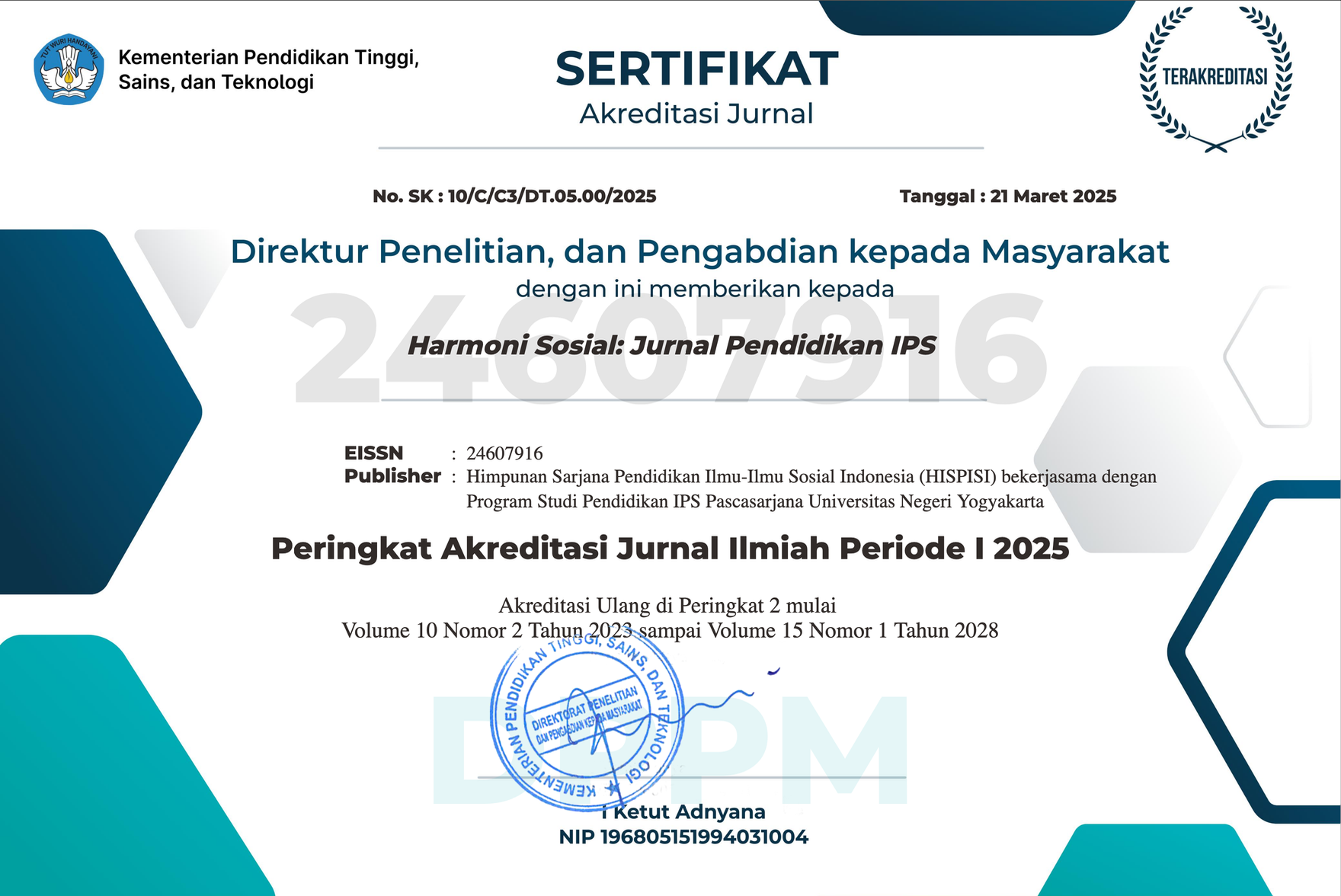Working conditions and interventions of Health extension workers in the rural areas of South-Western Ethiopia
Downloads
Downloads
Ali, A. Y. S., Ali, A. A., & Adan, A. A. (2013). Working conditions and employees' productivity in manufacturing companies in sub-Saharan African context: Case of Somalia. Educational Research International, 2(2), 67-78.
Anand, S., & Bärnighausen, T. (2004). Human resources and health outcomes: Cross-country econometric study. The Lancet, 364(9445), 1603-1609. doi: https://doi.org/10.1016/S0140-6736(04)17313-3
Bakotic, D., & Babic, T. (2013). Relationship between working conditions and job satisfaction: The case of Croatian shipbuilding company. International Journal of Business and Social Science, 4(2), 206-213.
Banteyerga, H., & Kidanu, A. (2008). Rapid appraisal of health extension program: Ethiopia country report. Addis Ababa: The L10K project and MHRC.
Bhutta, Z. A., Lassi, Z. S., Pariyo, G., & Huicho, L. (2010). Global experience of community health workers for delivery of health related millennium development goals: A systematic review, country case studies, and recommendations for integration into national health systems. Global Health Workforce Alliance, 1(249), 1-374.
Desta, F. A., Shifa, G. T., Dagoye, D. W., Carr, C., Van Roosmalen, J., Stekelenburg, J., ... & Kim, Y. M. (2017). Identifying gaps in the practices of rural health extension workers in Ethiopia: a task analysis study. BMC health services research, 17(1).
Farahbod, F., Azadehdel, M. R., Chegini, M. G., & Ashraf, A. N. (2012). Work alienation historical backgrounds, concepts, reasons, and effects. Journal of Basic and Applied Scientific Research, 2(8), 8408-8415.
Feysia, B., Herbst, C., & Lemma, W. (Eds.). (2012). The health workforce in Ethiopia: Addressing the remaining challenges. The World Bank.
Hemstrí¶m, í–. (2001). Chapter 7. Working conditions, the work environment and health. Scandinavian Journal of Public Health, 29(58), 167-184. doi: https://doi.org/10.1177/14034948010290033701
Koblinsky, M., Tain, F., Gaym, A., Karim, A., Carnell, M., & Tesfaye, S. (2010). Responding to the maternal health care challenge: The Ethiopian Health Extension Program. Ethiopian Journal of Health Development, 24(1), 105-109. doi: http://dx.doi.org/10.4314/ejhd.v24i1.62951
Kok, M. C., Kea, A. Z., Datiko, D. G., Broerse, J. E., Dieleman, M., Taegtmeyer, M., & Tulloch, O. (2015). A qualitative assessment of health extension workers' relationships with the community and health sector in Ethiopia: Opportunities for enhancing maternal health performance. Human Resources for Health, 13(1). doi: https://doi.org/10.1186/s12960-015-0077-4
Mirkuzie, A. H., Sisay, M. M., Reta, A. T., & Bedane, M. M. Current evidence on basic emergency obstetric and newborn care services in Addis Ababa, Ethiopia; A cross sectional study. BMC Pregnancy and Childbirth, 14(1). doi: https://doi.org/10.1186/1471-2393-14-354
Nemcek, M. A., & Sabatier, R. (2003). State of evaluation: Community health workers. Public Health Nursing, 20(4), 260-270. doi: https://doi.org/10.1046/j.1525-1446.2003.20403.x
Olson, D. J., & Piller, A. (2013). Ethiopia: An emerging family planning success story. Studies in Family Planning, 44(4), 445-459. doi: https://doi.org/10.1111/j.1728-4465.2013.00369.x
Sellen, D., Sharif, S., Tefera, B., & Hyder, Z. (2012). Strengthening family planning with community-based nutrition interventions in Ethiopia: A qualitative study. Washington: The International Bank for Reconstruction and Development / The World Bank.
Serneels, P., Montalvo, J. G., Pettersson, G., Lievens, T., Butera, J. D., & Kidanu, A. (2010). Who wants to work in a rural health post? The role of intrinsic motivation, rural background and faith-based institutions in Ethiopia and Rwanda. Bulletin of the World Health Organization, 88, 342-349.
Songstad, N. G., Rekdal, O. B., Massay, D. A., & Blystad, A. (2011). Perceived unfairness in working conditions: the case of public health services in Tanzania. BMC Health Services Research, 11(1). doi: https://doi.org/10.1186/1472-6963-11-34
Teklehaimanot, H. D., & Teklehaimanot, A. (2013). Human resource development for a community-based health extension program: a case study from Ethiopia. Human Resources for Health, 11(1). doi: https://doi.org/10.1186/1478-4491-11-39
Tilahun, D., Hanlon, C., Fekadu, A., Tekola, B., Baheretibeb, Y., & Hoekstra, R. A. (2016). Stigma, explanatory models and unmet needs of caregivers of children with developmental disorders in a low-income African country: A cross-sectional facility-based survey. BMC Health Service Research, 16(1). doi: https://doi.org/10.1186/s12913-016-1383-9
The United Nations. (2018, April). Ethiopia's progress towards eradicating poverty. Paper presented at the Inter-Agency Group Meeting On the "Implementation of the Third United Nations Decade for the Eradication of Poverty (2018 – 2027)", Addis Ababa, Ethiopia.
Woldie, M., Morankar, S., Feyissa, G., Labonte, R., & Sanders, D. (2015). Coverage of child health services in rural districts of Ethiopia with the health services extension program. Journal of Public Health and Epidemiology, 7(7), 223-231. doi: https://doi.org/10.5897/JPHE2015.0733
Workie, N. W., & Ramana, G. N. (2013). UNICO studies series 10: The health extension program in Ethiopia. Washington: The World Bank.
World Health Organization. (2006). The world health report 2006: Working together for health. World Health Organization.
Yamey, G. (2007). Which single intervention would do the most to improve the health of those living on less than $1 per day?. PLoS Medicine, 4(10), e303. doi: https://doi.org/10.1371/journal.pmed.0040303
The Authors submitting a manuscript do so on the understanding that if accepted for publication, copyright publishing of the article shall be assigned to Harmoni Sosial: Jurnal Pendidikan IPS
 | Harmoni Sosial: Jurnal Pendidikan IPS by http://journal.uny.ac.id/index.php/hsjpi is licensed under a Creative Commons Attribution-ShareAlike 4.0 International License. |









 ISSN Print
ISSN Print









